2018 Nissan Leaf Versus 2018 Hyundai Ioniq Electric - Head To Head In-Depth
This is the battle between two of the cheapest electric vehicles you can buy today. The 2018 Nissan Leaf is all-new. It is a huge step up from the dorky styling and lame performance of the previous model Leaf. The 2018 Hyundai Ioniq Electric leads the way in terms of cost and efficiency. It also happens to be the most efficient EV for 2018. The EPA confirmed this EV utilizes just 25 kWh of electricity per 100 miles, enough to beat the BMW i3, Chevrolet Bolt, and the Volkswagen e-Golf.
If you are buying an EV strictly for the emissions-free driving experience, you can't go wrong with either the Nissan Leaf and the Hyundai Ioniq Electric – But if performance and handling is of paramount importance, you better choose wisely.
2018 Nissan Leaf
It is hard to distinguish the 2018 Nissan Leaf from the first-generation model upon first glance. While the 2018 Leaf is regarded as an all-new model, it is actually the same car underneath albeit with incremental changes. The new styling gives it more sex appeal on the road, while the revised battery pack and electric motor ensures more thrilling performance over the old car.
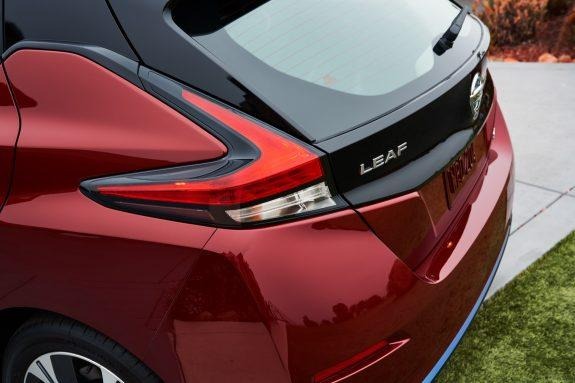
The new Nissan Leaf is equipped with a 110 kW AC synchronous electric motor. This motor is good for 147-horsepower. The motor is fed by a 40 kWh battery pack for an estimated range of 151 miles and an EPA estimated 125/100 MPGe in city and highway driving. This is more than what the Kia Soul EV and the VW e-Golf has to offer considering the Leaf's lower price tag.
The base model Nissan Leaf S starts at $29,990 before federal tax credits. It comes well-equipped with the Nissan e-Pedal, 7" information display, and automatic temperature control. The SV trim starts at $32,490 and includes larger wheels, a navigation system, and Apple CarPlay and Android Auto. The fully-loaded SL trim will set you back $36,200 but includes LED headlights with LED running lights, leather upholstery, and a portable 120V/240V charging cable.
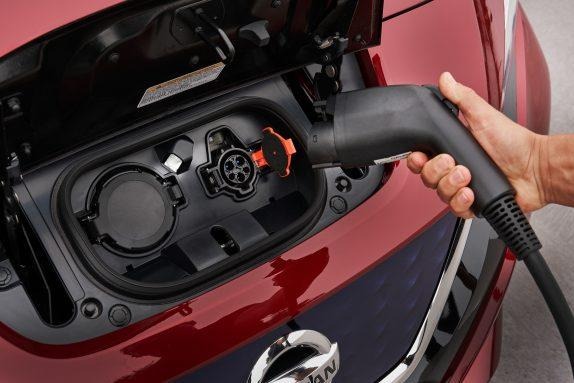
Driving the 2018 Nissan Leaf is a revelation. It scoots with authority compared to the previous model. In fact, the new Leaf can accelerate from 0 to 60 mph in around 7.6 seconds. The old car can only muster 10.3 seconds in the same sprint. From these figures alone, you can be sure the new Leaf is a more engaging and exhilarating machine.
The standard e-Pedal in the Nissan Leaf makes city driving easier. With the e-Pedal engaged, the car can come to a complete stop by simply lifting the throttle. It doesn't work as well in highway driving since you will still need to manually press on the brake pedal to bring the car to a halt. But in slow city driving, the e-Pedal works wonders.
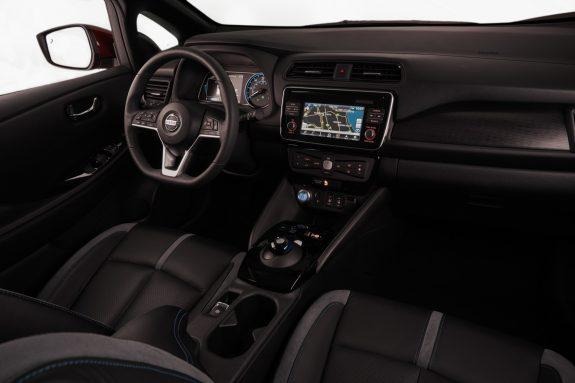
The steering is still not as sharp as we had hoped but the handling is something to write about. It can't corner like a Toyota 86 or Mazda MX-5, but it feels tighter and more composed than the Hyundai Ioniq Electric. This is an incredible feat given the smooth compliance of the suspension over pockmarked roads.
Perhaps the only things we didn't like about the 2018 Nissan Leaf is the lack of a telescoping steering wheel and the inability of the rear seats to fold completely flat. This is a huge setback given the abundance of front and rear legroom. But for what it is, we commend Nissan for the vast improvements without raising the price tag.
2018 Hyundai Ioniq Electric
In this crazy world of hybrids and EVs, the Hyundai brand stands out in terms of value. The 2018 Ioniq Electric is the most efficient electric vehicle money can buy. It also has the lowest base price among EVs from other brands. If those two were the only criteria for selecting the best EV, the Ioniq Electric will win hands down. But electric vehicles have come a long way. It seems the engineers at Hyundai were too busy tweaking the car for cost-effectiveness and efficiency while paying less attention to driving dynamics.
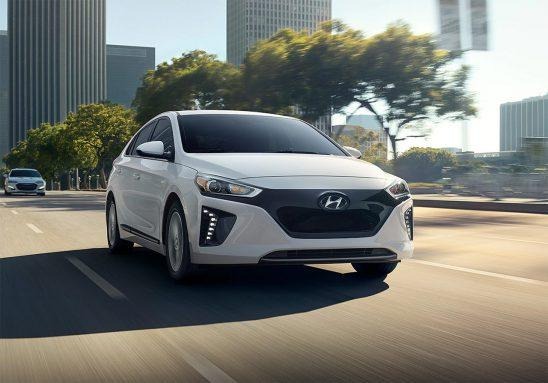
The 2018 Hyundai Ioniq Electric is powered by a permanent-magnet synchronous motor that outputs 118-horsepower and 218 pound-feet of torque. The motor is fed by a 28 kWh lithium-ion polymer battery for an EPA estimated range of 124 miles and 136 MPGe. Based on these figures, the Ioniq Electric is slower and gives up 27 miles of range compared to the Nissan Leaf. However, the electric motor can still propel the Ioniq Electric from 0 to 60 mph in around 9.0 seconds.
The base model starts at $29,500 before tax credits. It comes well-equipped with LED running lights and taillights, automatic headlights, a tilt-and-telescoping leather-wrapped steering wheel, Bluetooth, and a 7-inch central display with Apple CarPlay and Android Auto. The base trim also comes with an SAE combo DC fast charger which is only standard on the top-of-the-line Nissan Leaf SL. The Limited trim of the Ioniq Electric comes with leather seats, a sunroof, larger 8-inch screen, Xenon headlights, interior ambient lighting, and a power driver's seat for $36,000.
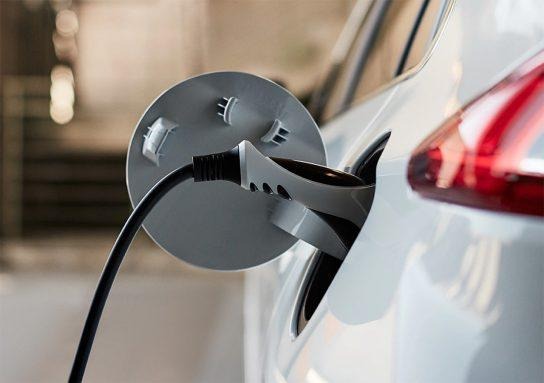
The 2018 Hyundai Ioniq Electric drives smoothly and silently, which is how an EV should be. It doesn't feel as quick or agile as the Nissan Leaf in the open road, but it certainly feels brisk when driven in the confines of the city. The steering is light but lacks the required feel to be driven aggressively. The suspension offers decent ride quality but it feels choppy over road undulations.
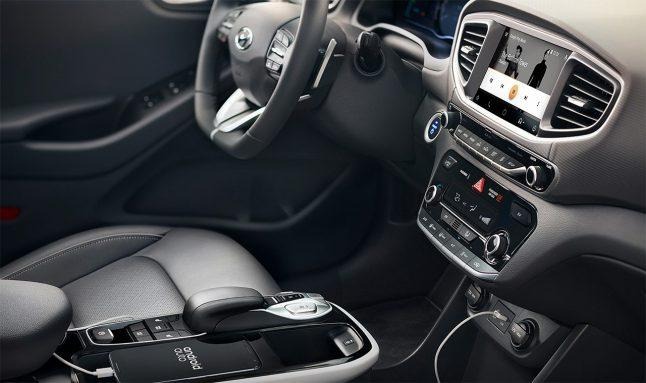
Interior and cargo space is impressive given the sub-compact dimensions of the Ioniq Electric. The rear seats can fold flat to serve more cargo space when needed. This is where the Ioniq Electric shines over the Nissan Leaf. The Hyundai is more practical and can carry more stuff even without folding the rear seats. It also comes with a longer 100,000-mile powertrain warranty and 60,000-mile/5-year new vehicle warranty.
Final Take
If you are in the market for a practical and affordable electric car, the 2018 Hyundai Ioniq Electric will serve you well. It comes with abundant standard features at a low base price – But if you desire an electric car that is meant to be driven, take a closer look at the 2018 Nissan Leaf – It offers more oomph from the more powerful motor and it can take you farther courtesy of the larger battery pack.
